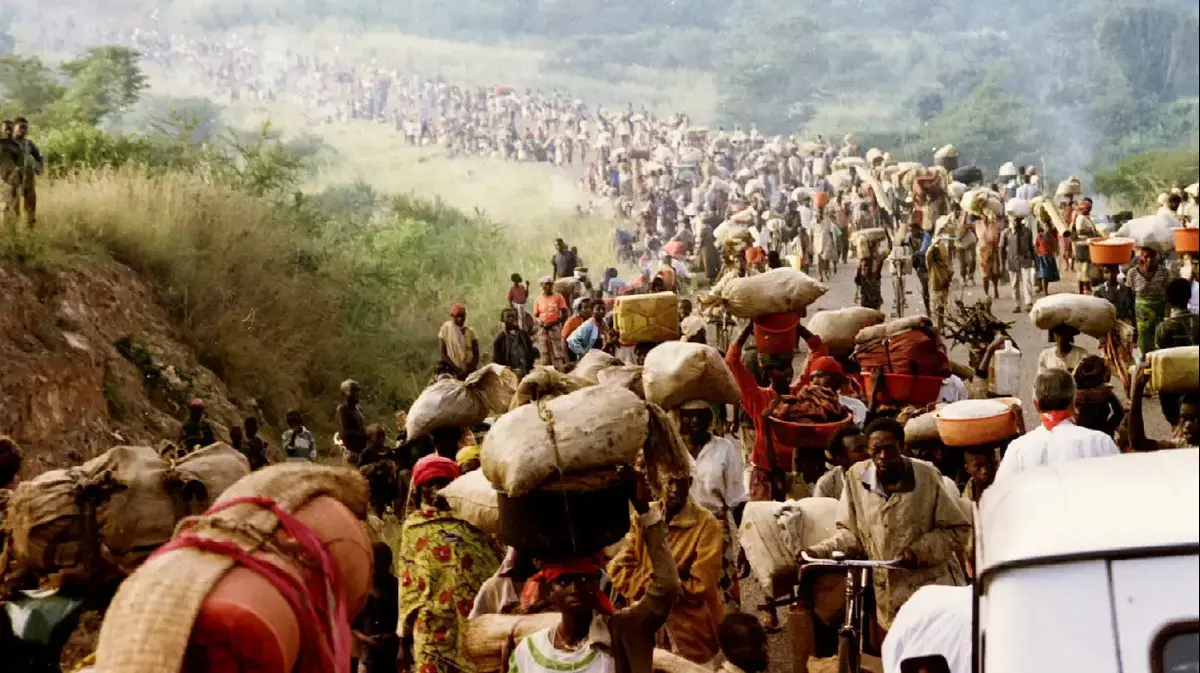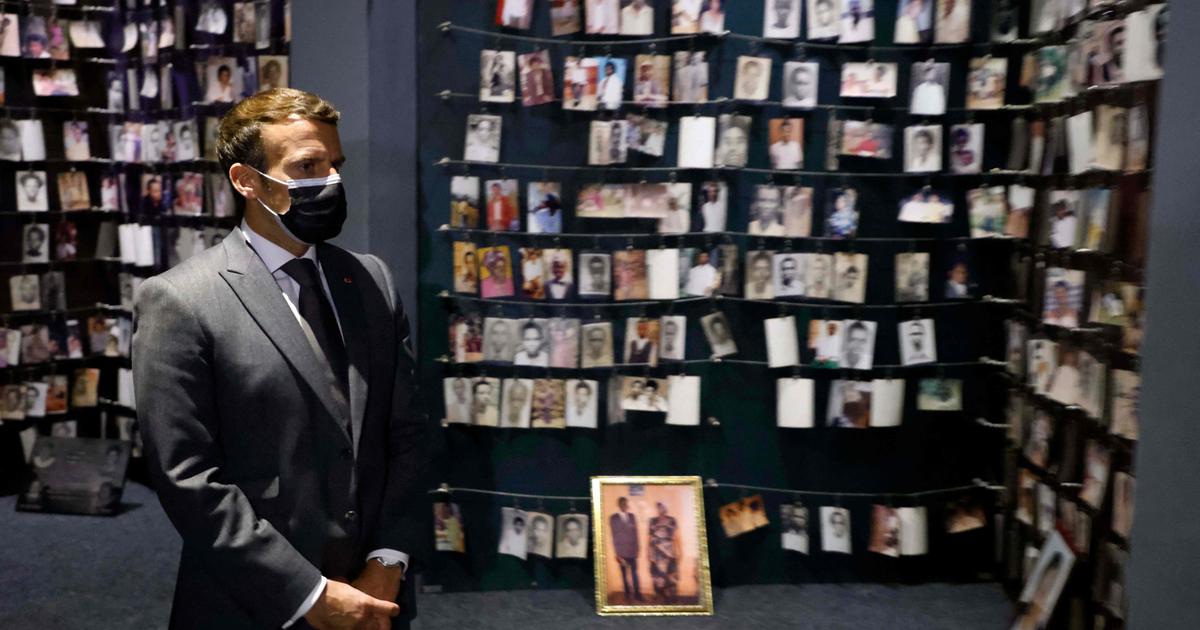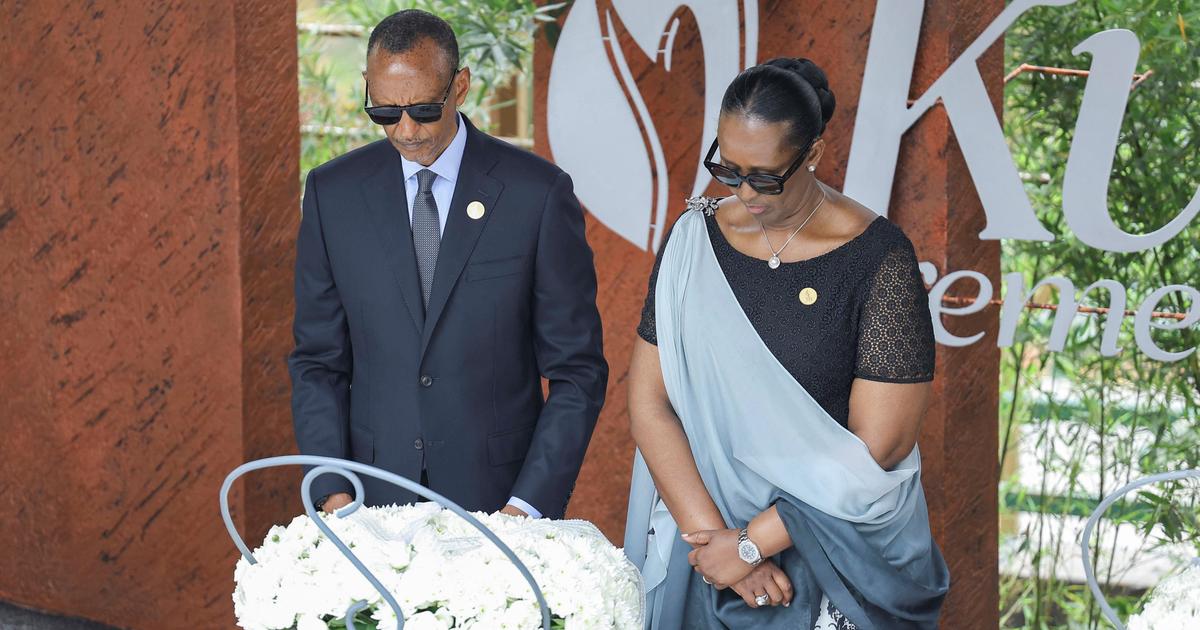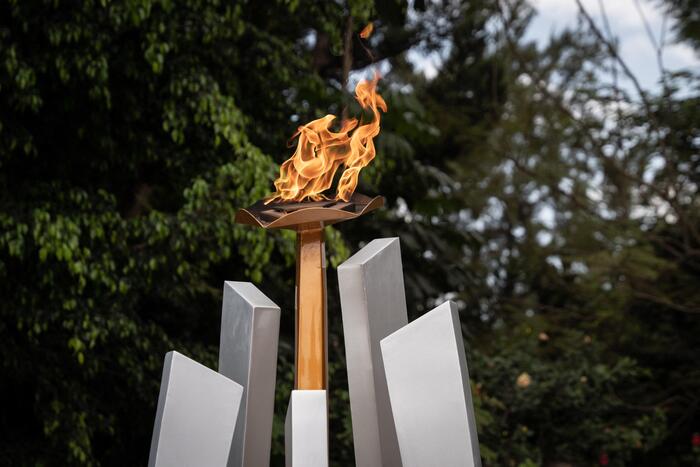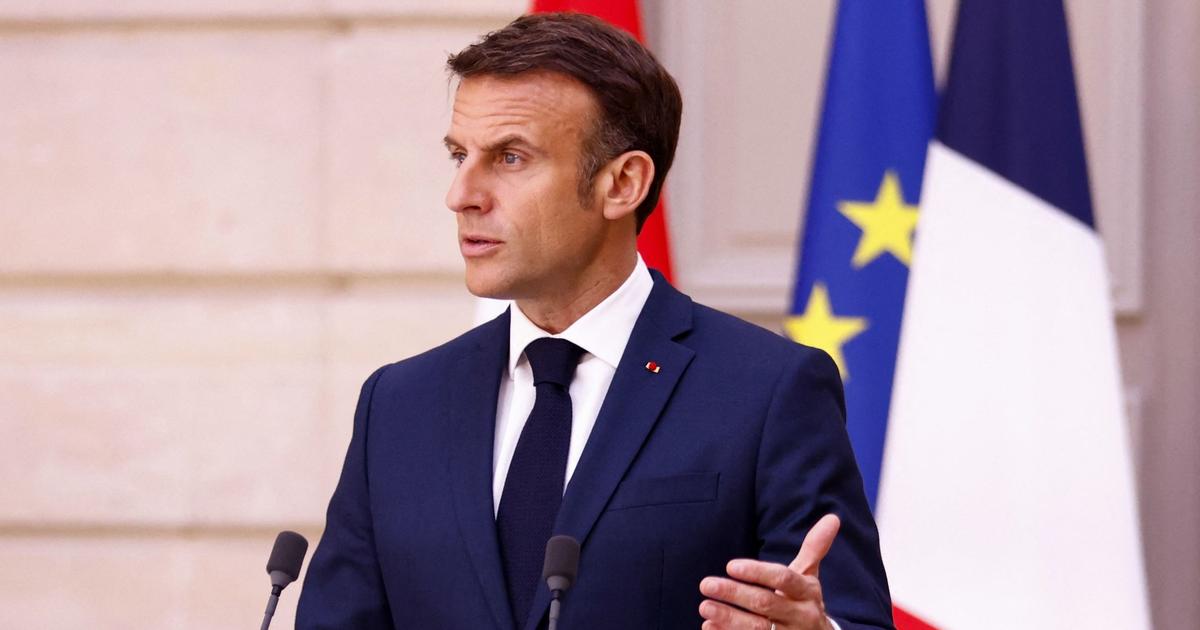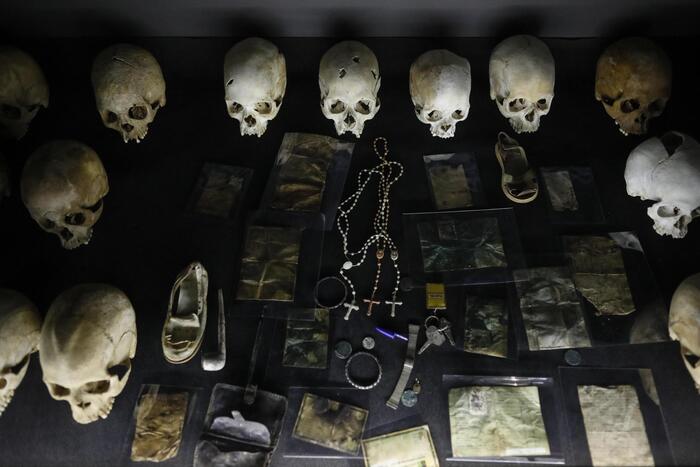"I come to recognize the extent of our responsibilities ..." At the Gisozi memorial in Kigali (Rwanda), whose burial contains the remains of more than 250,000 victims, which in itself already says the horror, it was for Emmanuel Macron to put some words on the role of France in the genocide of the Tutsis, which left more than 800,000 dead in 1994. A first.
Twenty-seven years have passed, inflating "the share of suffering it inflicted on the Rwandan people by making silence prevail over the examination of the truth for too long," recalls the president. What historian Stéphane Audoin-Rouzeau calls "the wall of French denial", pierced by the report led by historian Vincent Duclert establishing the "heavy and overwhelming responsibilities" of Paris. Passive so heavy.
An apology was "impatiently" awaited by survivor organizations. This is not the formula adopted by Emmanuel Macron - "genocide is no excuse", he believes. Yet already pronounced by the United States or the United Nations, the term is sensitive in France. In Gisozi, the president chose these words: “On this path, only those who have gone through the night can perhaps forgive, give us the gift of forgiving ourselves. They are strong, heavy. But not as clear, direct, as some hoped, especially the survivors of the genocide.
The French president does not ask for this pardon, as the Belgian Prime Minister had done in 2000. He "hopes" for it.
Like a setting to music of his memorial philosophy, an explosive dossier that he tackles like a devil Macronian: “no repentance”, but “recognition”.
Reminiscent of his famous "at the same time".
"France was not an accomplice"
History, as he intends to "look it in the face", is in particular to say to Gisozi that "France has not understood that, by wanting to prevent a regional conflict or a civil war, it remains de facto sides of a genocidal regime ”. These words are also calibrated. His visit to the memorial led him to pass a sign mentioning the arrival "of French soldiers during
Operation Turquoise
, supposedly to create a place of refuge in the south of the country between the
warring
parties
. "Response from the president, coupled with a strong message to the army:" The killers who haunted the marshes, the hills, the churches, did not have the face of France. She was not an accomplice. "
Emmanuel Macron assumes "the risks" of his memorial line. Because, "it is at the same time precisely to decide not to satisfy anyone because one does not choose its truth", he advances shortly after, during a joint press conference with Paul Kagame at the presidential palace. The Rwandan president in tune: “His words had more value than an apology. They were the truth. "
The choreography manifests the will of the two heads of state to renew "powerful and irreversible" relations between the two countries, after "twenty-seven years of bitter distance" (these words are from Macron).
It notably involves the appointment of a French ambassador to Rwanda, a vacant post since 2015, a sign of the tension that may have reigned.
Or by the inauguration, at the end of the day, of the Francophone Cultural Center.
So many signals also sent, beyond the Rwandan borders, to Africa, in particular its youth.
A feeling of unfinished business for some
The fact remains that at the foot of the platform in Gisozi, just after the speech, before the official words of the reputedly authoritarian regime gave the floor, some confided a feeling of unfinished business despite "strong emotion". “We were waiting for him to apologize on behalf of the French state. Emmanuel Macron did not say it clearly, he really avoided the exact word. Even when he speaks of forgiveness, he does not ask forgiveness ", slips Egide Nkuranga, president of Ibuka, the main organization of survivors, who despite" a kind of disappointment ", philosopher:" It is the beginning of A long way. "This recognition is what I can give", replies (remotely) Emmanuel Macron during his press conference.
One of its translations stems from the president's pledge "that no one suspected of crimes of genocide can escape justice." Or, "to build all the administrative solutions that can facilitate prosecutions, the establishment of the truth and extraditions". A crucial point for the survivors who never cease to regret that suspected genocidaires "are lugging around in freedom" in France. And could not understand that this declaration is not followed by results. “I appreciate and I await the continuation, entrusts us one of them, Pierre Kalinganiré. If France sends back the genocidaires, it will be more important than a request for forgiveness. As he said, we live with genocide forever. "


